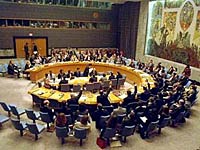|
||||||||||||||||||||||||||||||||||||||||||||||||||||||||||||||||||||||||||||||||
| Politics | ||||||||||||||||||||||||||||||||||||||||||||||||||||||||||||||||||||||||||||||||

Politics is an integral part of human civilisation. The systematic study of politics has been conducted for some 2,500 years, since the ancient Greeks. It thus predates the other social sciences - economics, sociology, anthropology, and psychology - by a few millennia. Aristotle called politics the "master science", because unless people could live together and flourish all other human pursuits were futile. Politics at UNSW involves the study of governments, political systems, processes and behaviour, public policies, the basis of political relationships such as political authority and political obligation; political values such as liberty, equality, and justice; and normative questions of how human beings should live together. A major in Politics thus treats many of the headline issues and big questions governments, societies, and citizens face. The Politics major is closely connected to International Relations (itself a field of Politics), as well as to the disciplines of Sociology, Economics, History, Philosophy, and Law. UNSW has research strengths in the disciplinary fields of Australian Politics, Comparative/World Politics, and Political Theory.
Studying Politics at UNSW The study of Politics is primarily through the School of Social Sciences and International Studies. See refer to the table below for a list of plans available.
Politics can be studied in the following Programs
Pols & International Relations can be studied in the following Programs
|
||||||||||||||||||||||||||||||||||||||||||||||||||||||||||||||||||||||||||||||||



